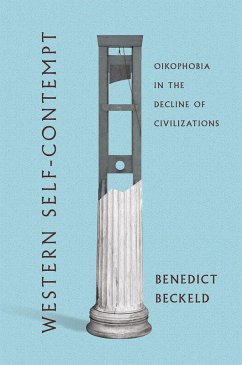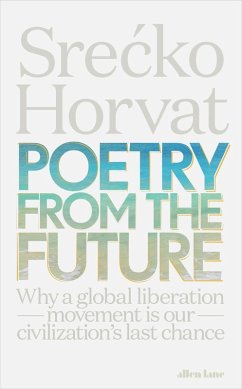
Perilous Futures (eBook, ePUB)
On Carl Schmitt's Late Writings
Versandkostenfrei!
Sofort per Download lieferbar
16,95 €
inkl. MwSt.
Weitere Ausgaben:

PAYBACK Punkte
8 °P sammeln!
Since his death, the writings of Carl Schmitt (1888-1985) have been debated, cited, and adopted by political and legal thinkers on both the left and right with increasing frequency, though not without controversy given Schmitt's unwavering support for National Socialism before and during World War II. In Perilous Futures, Peter Uwe Hohendahl calls for critical scrutiny of Schmitt's later writings, the work in which Schmitt wrestles with concerns that retain present-day relevance: globalization, asymmetrical warfare, and the shifting international order. Hohendahl argues that Schmitt's work see...
Since his death, the writings of Carl Schmitt (1888-1985) have been debated, cited, and adopted by political and legal thinkers on both the left and right with increasing frequency, though not without controversy given Schmitt's unwavering support for National Socialism before and during World War II. In Perilous Futures, Peter Uwe Hohendahl calls for critical scrutiny of Schmitt's later writings, the work in which Schmitt wrestles with concerns that retain present-day relevance: globalization, asymmetrical warfare, and the shifting international order. Hohendahl argues that Schmitt's work seems to offer solutions to these present-day issues, although the ambiguity of his beliefs means that Schmitt's later work is a problematic guide.
Focusing on works Schmitt published after the war-including The Nomos of the Earth, Theory of the Partisan and Political Theology II-as well as his posthumously published diaries, Hohendahl reads these works critically against the backdrop of their biographical and historical contexts, he charts the shift in Schmitt's perspective from a German nationalist focus to a European and then international agenda, while attending to both the conceptual and theoretical continuities with his prewar work and addressing the tension between the specific circumstances in which Schmitt was writing and the later international appropriation. Crossing disciplines of history, political theory, international relations, German studies, and political philosophy, Hohendahl brings Schmitt's later writings into contemporary discourse and forces us to reexamine what we believe about Carl Schmitt.
Focusing on works Schmitt published after the war-including The Nomos of the Earth, Theory of the Partisan and Political Theology II-as well as his posthumously published diaries, Hohendahl reads these works critically against the backdrop of their biographical and historical contexts, he charts the shift in Schmitt's perspective from a German nationalist focus to a European and then international agenda, while attending to both the conceptual and theoretical continuities with his prewar work and addressing the tension between the specific circumstances in which Schmitt was writing and the later international appropriation. Crossing disciplines of history, political theory, international relations, German studies, and political philosophy, Hohendahl brings Schmitt's later writings into contemporary discourse and forces us to reexamine what we believe about Carl Schmitt.
Dieser Download kann aus rechtlichen Gründen nur mit Rechnungsadresse in A, D ausgeliefert werden.













